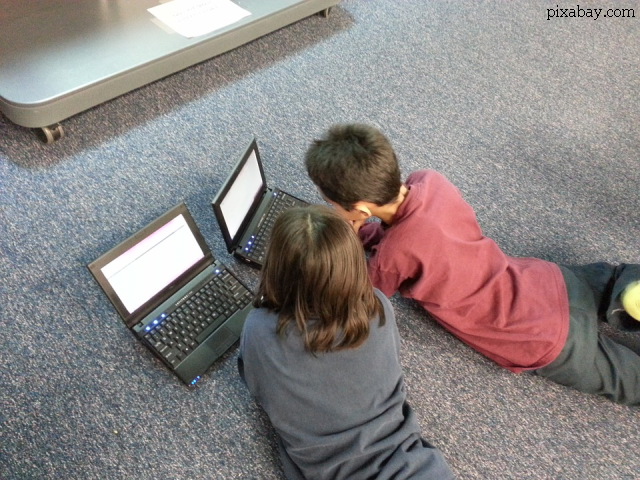What parents don’t know about their children
A new study reveals a communication gap between parents and children regarding the latter's online presence

Christine Leșcu, 17.07.2024, 14:00
Many parents
still don’t know what their children are doing and how much time they spend
online. This empirical observation, based on the experience of the majority of
adults, has recently been clearly confirmed by a sociological study conducted
by the Save the Children Romania Association. Focusing on the adults’ perception of children’s
use of the Internet, the study was compared to a similar survey carried out in
2023, this time focusing on children’s perceptions. The conclusion is as
follows: unfortunately, children and parents are worlds apart, in terms of the
perception of both the risk and the time spent online, says sociologist
Ciprian Grădinaru.
We can see that
3 in 10 parents say their kid spends an hour online on average. It’s surprising,
because only 2 or 3% of children say they spend under an hour online every day.
We can notice the first difference here, because nearly 3 in 10 children say
they spend over four hours on the Internet for extracurricular activities. We
didn’t enquire about their school assignments, because we are still in a
post-pandemic context, where learning behaviors have most likely remained
anchored online. The main things parents say their children are doing online are
play video games and watch video content and all that entails. I will only
focus on one aspect – social media, where 30% of parents say their children
have an account. If we look at parents with children over 10 years, the
percentage then increases to 40%. But if we bring into the discussion the
opinions of children who participated in the February 2023 survey, we will
notice that 90% of children said they have an account on a social network.
The difference
between what parents believe their children are doing online and what they
actually do becomes critical in the context of online bullying and other
incidents. Ciprian Grădinaru gave us
more details.
With respect to
online incidents, I will refer to two elements: 9% of parents say that their
kid experienced such an incident recently. There are two aspects worth exploring
here. Some 11 years ago, in 2013, the percentage was virtually identical for another
sample of interviewed parents: 9%. Since 2013, social media have been gaining
increased traction. There are even more networks today, many of which pose a
high degree of risk. The devices children use to log in have also multiplied,
and the volume of time spent online has gone up. We know that in the last 10
years the age of children who spend time online has dropped by approximately 4
years. Still, the number of incidents and the fact that they remain virtually
unknown have endured. It’s a topic worth researching, because some 40% of interviewed
children say they experienced such an incident, but only 20% say they talked to
someone about it. That someone can be a friend, not necessarily a parent.
Therefore, we estimate that one in four online incidents remain unreported, not
just unknown to parents.
In fact, the
main issue here is the communication gap across generations, which makes
parents ignore their children’s concerns, and children hide them from adults.
Still, adults have shown availability to reach out, sociologist Ciprian Grădinaru
explains.
10 years ago,
in 2013, parents had tighter control of their children’s online behavior. A
larger percentage of parents said they were doing online activities jointly
with their children, for instance playing video games together. The figures
went down by at least 10-20% in the last 10 years. On a brighter note, the use
of parent control programs has gone up. New programs have also been developed.
Whereas 10 years ago two in ten parents said they had installed such software
on their children’s devices, today that percentage has doubled. The question
remains how efficient are they really and what about those who don’t use these
apps?
Deficient
dialogue and mutual understanding often create dramatic situations for children
who are harassed online, some of them ending up in therapy. Bianca Joiță recounts her personal experience.
I was in the 8th
grade. I recall being very nervous due to the final tests, and my parents were
also stressed out. The first time I heard about the pandemic and the two-week
break I was very happy at the thought I would stay home and have time to study.
We very well know, however, that the two weeks became whole months, during
which time I was with my parents at home, and I could have got closer to them,
talked to them and known them better. But being so stressed out about school
and so disorganized, my reaction to this emotional surge was to drift further
away from them. So, I spent a lot of time online and ended up a victim of bullying.
I started talking to people my age, who hurt
my feelings, started making jokes about me and the way I looked. And since I
had distanced myself from my parents and had sought comfort in using my phone
and the Internet, it was hard for me to tell them what I was going through. It
was a battle I had to fight on my own, and a great learning experience. I’m now
enrolled in a teachers’ high-school, and I know how important it is for
children to talk to their parents, I value family relations and I know the
mistakes I made and what I could have done to avoid this terrible affair.
To conclude,
apart from tighter control of children’s online activity and limiting screen
time, another way of steering clear of online threats is for parents and
children to remain in constant dialogue, Save the Children Romania experts say.
(VP)






























